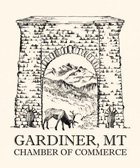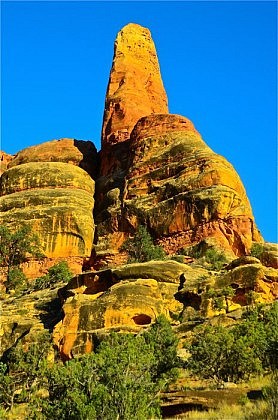As previously discussed, a simple backpacking menu is best, and that’s our philosophy on Big Wild Adventures guided hiking treks. Yet, because Big Wild is a commercial operation, we do bring a few carefully packaged luxuries, such as fresh produce and desserts (all prepared by our guides). So our menu for our guided hiking tours in Yellowstone and elsewhere is a relatively simple but tasty mix of fresh and dried foods that’s filling and nutritious. It is dominated by complex carbs such as whole grain pastas and a mix of dried and fresh fruits, vegetables and protein. Also, our guides shop and plan each menu with the foremost consideration of avoiding really smelly items that might attract animals. This is especially important in bear country, because once a bear successfully pilfers food from human campers, that bear will habitually get into trouble — until somebody is injured or the bear is shot by rangers, or both. Remember, “A fed bear is a dead bear”. Do not foster the demise of Yogi!
Also, pack everything in Ziploc bags (and re-use and recycle the bags after the trip!). That’s an important line of defense against escaping food odors. And don’t forget to wash your hands and use hand sanitizer prior to food preparation. This will prevent the spread of disease-causing microorganisms, which could seriously mess with someone’s digestive tract. This will also minimize the unfair blaming of Giardia protozoans for digestive difficulties. That’s because research proves that many — if not most — cases of alleged “Giardia” are actually some other microbe spread by poor sanitation! So clean your hands after you poop and before you prepare chow for your fellow hikers or dig your hands into the communal trail mix.
A few words on spoilage: If you’re hiking in the Great Smokies in July, nearly any fresh food will quickly spoil in that warm, wet climate. In fact, it is so moist and mild in the southern Appalachians that you might actually begin to decompose on the trail! So maximize dried foods. On a guided hike in Yellowstone, though, or for that matter just about anywhere in the Rocky Mountains, the humidity is low, and even after a warm day, nights cool into the 40’s or lower. So items such as cheese, carrots, peanut butter, bread and salsa will usually keep just fine (in Ziplocs!), even on a week long trek in the big wilds. But don’t forget: just because foods don’t easily spoil is no reason to tempt fate and bring things that are likely to attract bears and other animals. Give the critters a break and be careful what you buy at the supermarket!



